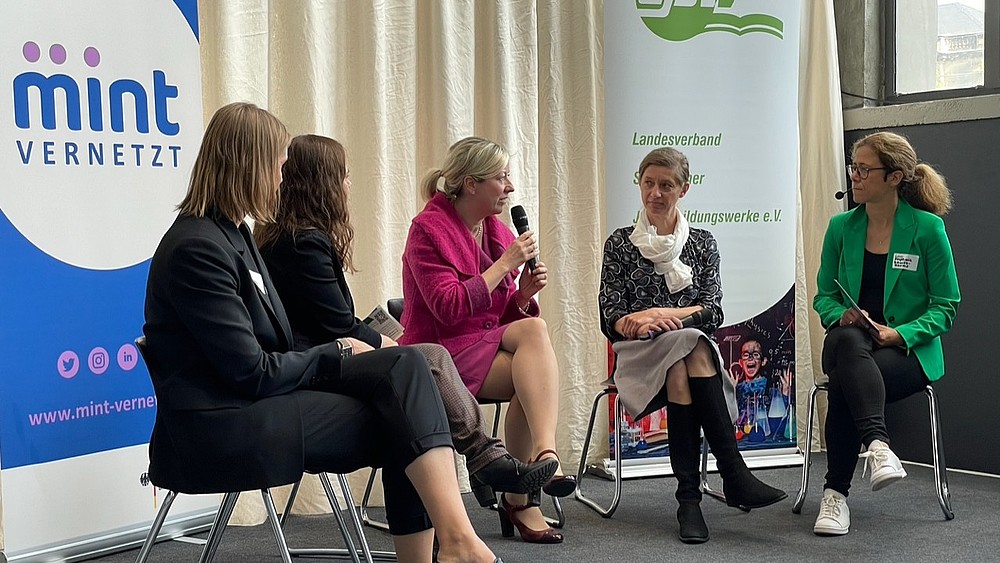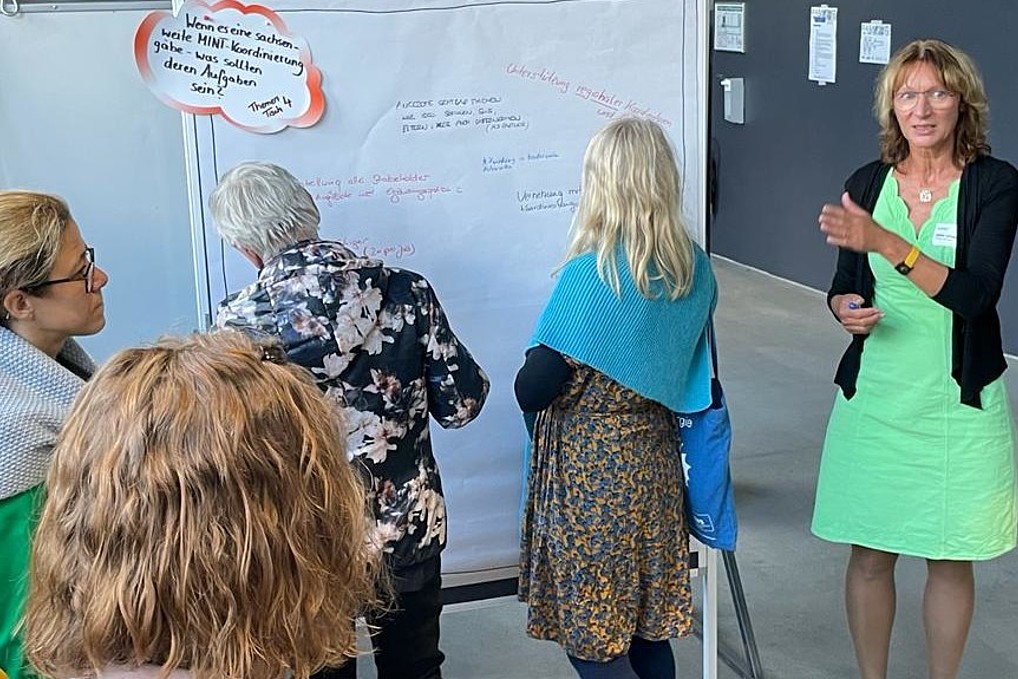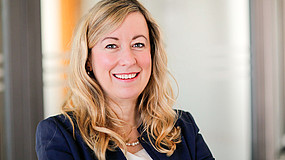ZukLOS project reports on its extracurricular educational work in Upper Lusatia.

On October 6, 2022, Saxon STEM stakeholders discussed the future of extracurricular STEM education. The event was organized by the Landesverband Sächsischer Jugendbildungswerke e. V. (LJBW) and the MINT-Vernetzungsstelle Deutschland. Around 120 representatives from education, administration, politics and business met at Kraftwerk Mitte in Dresden to develop joint strategies for targeted STEM education in the Free State of Saxony.
The MINT Conference Saxony - Networking with Perspectives aimed to highlight the needs and necessity for the creation of a MINT coordination office in Saxony, to support joint exchange and to promote Saxony-wide networking among stakeholders. To kick off the event, Dr. Sven Günter, Chairman of the Foundation for Technology, Innovation and Research Thuringia (STIFT), explained the coordination of STEM education in Thuringia. State-wide organized STEM networks in Bavaria, North Rhine-Westphalia and the Free State of Thuringia, among others, show that such strategically positioned central offices can have a significant added value for each individual STEM actor. The resource and funding requirements of this central unit and the organizational challenges were discussed. It is noteworthy that three ministries in Thuringia are jointly committed to and finance this foundation.
Dr. Antje Weyh from the Institute for Labour Market and Career Orientation (IAB) of the Saxony Regional Directorate then gave a keynote speech entitled "STEM professions in Saxony: the labour and training market" in which she analyzed the labour market situation for STEM specialists in the Free State.
In a panel discussion, Dr. Stephanie Kowitz-Harms, Head of the MINT Networking Office Germany - MINT vernetzt, together with Prof. Sophia Keil, Vice President for Education and International Affairs at the Zittau/Görlitz University of Applied Sciences, Karin Meusinger, Consultant for Skilled Workers at Silicon Saxony e. V., discussed the situation, Ms. Saskia Schnasse, consultant for STEM networking and coordination at the Saxon State Ministry of Culture (SMK) and Ms. Birgit Walter, Managing Director of VDI-GaraGe Leipzig, on the potential and challenges of extracurricular STEM education in Saxony.
In her statement, Professor Keil emphasized that STEM specialists are particularly needed in rural regions such as Upper Lusatia to actively shape structural change. To ensure that the region's young people can also become the skilled workers of tomorrow, new innovative extracurricular educational programs are needed that are suitable for the target group and arouse enthusiasm and interest in technology and STEM subjects among children and young people. In the "Future Learning Location Upper Lusatia" (ZukLOS) project, the Zittau/Görlitz University of Applied Sciences is therefore developing learning spaces of the future and educational programs focused on regional development for the extracurricular sector in order to specifically support children and young people in the (further) development of their individual STEM skills.
STEM specialists are of central importance for Germany as a knowledge society. After all, without skills in the fields of mathematics, computer science, natural sciences and technology, no innovations can be produced to solve global challenges. However, good skilled workers are also needed in rural areas, where clever solutions must be found to enable the essential basic functions of existence such as 'educating oneself', 'working' and 'participating in transportation'." Vice President Education and International Affairs Sophia Keil
”Things got practical in a Word Café. We worked very specifically on the topics of what a central STEM coordination office in Saxony should do, how it should be organized and which partners need to be involved. It became very clear that the stakeholders wanted cooperation at ministerial level to be made possible or significantly improved.

The tasks of a central Saxon STEM steering unit are primarily seen as formulating strategic goals for STEM education and developing formats to achieve them. The numerous stakeholders from different areas must be efficiently networked and broad media campaigns launched. And last but not least, a quality campaign should serve to make it easier for teachers, parents and business partners to select suitable STEM tools from the multitude of offerings." Sabine Scholz
”The BMBF-funded "Zukunftslernort Oberlausitz - Analyse und Entwicklung außerschulischer MINT-Bildung" (ZukLOS ) is being carried out under the project management of Professor Dr. rer. pol. Sophia Keil, Vice President Education and International Affairs at the Zittau/Görlitz University of Applied Sciences, in cooperation with the Technical University of Dresden. The aims of the project are to record the current status of extracurricular STEM education in the region, derive recommendations for action for the further development of the educational landscape and develop and promote new educational opportunities. In this way, STEM-related problem-solving skills of children and young people are to be promoted in the long term.
Find out more here.







